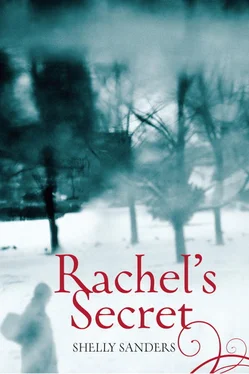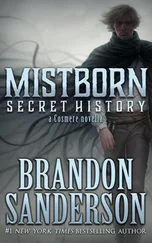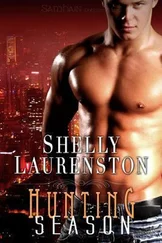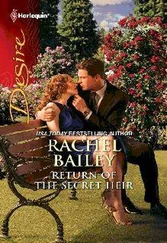Rachel started to sob into her hands. She felt Mrs. Berlatsky’s gentle touch around her shoulders as she led her away.
“You did very well, Rachel,” said Mrs. Berlatsky. “I’m sure it will just take time until Chaia is with us again. Come. We must go and see how your mother is doing.”
“She’s not much better than Chaia,” said Rachel. “No broken bones, but she doesn’t speak. It’s as if there is nothing inside of her.”
“It has been a terrible time for all of us.”
They walked down the corridor where moans drifted from doorways like a brisk fall wind.
“But why are you able to be so strong and my mother… why is she so weak?”
“Do not call your mother weak, Rachel,” said Mrs. Berlatsky sternly. “She is one of the strongest people I’ve ever known.”
“Then why—”
“Your mother is used to being in control, to planning and having things turn out the way she expects. This violence… losing your father… she needs time, like Chaia. She will come around. You will see.” She squeezed Rachel’s shoulders, which reassured her and made her feel hopeful.
Rachel turned away with tears in her eyes as the doctor pulled the bloodstained blanket over the young woman’s yellowish-gray face. For two days, the woman had been groaning in agony, though there were no visible signs of trauma. She had been louder than anyone else in their room, yet Rachel had become used to the sound. Now she was dead, and it was almost too quiet.
“Rachel, do you want to go for a walk?”
She looked up to see Sacha standing at the door to the room. He looked thin, gaunt, and tired. Rachel glanced at her mother who lay motionless on her cot, her eyes looking up at the white ceiling, and nodded. When she stood, a hunger pang ripped through her insides, and she had to balance herself on the wall until it went away. She tiptoed carefully over the people on the floor. Some slept, others were weeping, and a few talked quietly.
In the courtyard, Rachel inhaled the cool air. “Oh! I didn’t realize how stifling it was in there.”
“I know,” said Sacha. “I hate being surrounded by strangers… all the time, every minute. There’s nowhere to be alone.”
As soon as they stepped outside the courtyard, Rachel gasped and clutched Sacha’s arm. Though the bodies were gone, the road was still strewn with debris and she could see blood stains a few inches from her feet. Furniture had been pushed to the sides to make way for carriages, and there was an endless trail of broken glass, tiles, pieces of wood, and feathers. The air was thick with the scent of urine and lamp oil.
She let go of Sacha’s arm, leaned on the courtyard wall, and began breathing heavily and with difficulty.
“I can’t… I can’t do this,” she said. “I’m just not ready.”
“That’s all right.” Sacha took her hand firmly and led her back into the courtyard.
“Do you think most gentiles want to hurt us?” she asked him when they were back inside the safety of the walls.
“No.” He hesitated. “My father and I wouldn’t be here without the help of a gentile family.”
“What do you mean?” She pulled her hand from his, which was clammy and warm, and saw a pained expression flicker across his face.
“When the riots began on our street, we fled from our flat. At first, we ran along the street, ahead of the rioters, but they were catching up to us. Then a door opened—a red door—and a man with a kind face told us to come in for protection. Other Jews were already inside. We hid there for hours. The man and his wife fed us and made sure we were safe.”
“I’m glad they took you in.” His story reminded her of Sergei and how he had risked his own life to try and stop the rioters in her courtyard. He believed in her so completely, He didn’t see her as a Jew but as a person equal to himself.
Rachel had a sudden urge to see Sergei, to thank him once more, and to get to know him better, but at the same time, she realized they would both be better off if their paths never crossed again.
“What do you want?” The shopkeeper leaned over the counter. His fingers were stained yellow at the tips and the few teeth he had in his mouth were crooked and brown.
“Some tobacco please.” Sergei looked down as he spoke to avoid the shopkeeper’s foul breath. He hated buying anything from this disagreeable man, but he had the cheapest tobacco in Kishinev. The small store had shelves of cigarette papers, loose tobacco, pipes and cigars. A bold red advertisement for cigarettes hung on the wall, with a caricature of two well-dressed men sporting shiny white teeth. Outside, a policeman’s voice rose above the crowd, ordering people to stay back on the sidewalk.
“A mess out there, yes?” muttered the shopkeeper. “They’re waiting for Lopukhin to arrive.”
“Who’s he?” Petya asked.
“Head of the Imperial Police. Come to investigate the riots.” He paused and leaned over the counter. “If you ask me, the Yids brought all this on themselves.”
“What are you talking about?” Sergei clenched his fists to keep his temper from getting the better of him.
“The newspaper says they’ve been taking over Kishinev. Putting us out of business. Time we did something about it.” He stopped speaking for a moment to wipe his brow with a dirty cloth. “Twenty kopecks.”
“Even if they do put people out of business, it’s not illegal, and it’s not worth killing for,” Sergei said, glaring at the shopkeeper. He threw the kopecks on the counter and headed to the door.
“You have to stop arguing with people,” Petya said to Sergei as soon as they were outside. “You’re going—”
A sharp jingling sound interrupted Petya as they stepped onto the crowded sidewalk. The boys looked to their left and watched a large closed carriage coming along the street, led by two majestic horses adorned with necklets, bells, and foxtails. When it came closer, Sergei could see from the intricate carvings on the carriage that it carried someone important.
Unable to get away from the mob of people, the boys watched as the carriage passed by. The passenger, a middle-aged man with gray hair and black, turned-up whiskers, wore round spectacles and stared straight ahead, ignoring the hordes of people gaping at him.
“Come on,” said Sergei. He slipped in front of the crowd and onto the street.
“That must be the police official the shopkeeper talked about,” said Petya.
Sergei nodded, his eyes pasted on the Jewish people lining the road. They were disheveled, with torn clothing, and many had open wounds. Turning a corner, Sergei and Petya left the crowd behind them. “Is he going to see your father?” Petya asked.
“I don’t know. I haven’t spoken with my father much. He’s been in a pretty bad mood since the riots.”
“How come? It’s not like they were his fault.”
“I saw a telegraph he received last night. The military troops are staying here for a while to make sure nobody else gets hurt. I don’t think my father likes having people watching over him.”
“Well, at least your father didn’t hide when all the fighting was going on. My father could at least have pretended to do something.” Petya shook his head and scowled.
“I don’t know. My father paraded around, watched the attacks, and did absolutely nothing.” Sergei turned to leave. “I’ll see you later.”
“Where are you going?” asked Petya.
Sergei wanted to tell Petya about Rachel, and how worried he was about her, but he knew this would be a mistake. “To find someone.”
In the hospital’s courtyard. Sergei stared, open-mouthed, at the patients sitting mutely on the steps, heads and arms wrapped in bandages, pain etched on their faces. Weeping—anguished cries—accosted him when he opened the door. The sharp, overpowering smell of antiseptic mixed with the putrid odor of perspiration filled his nose and mouth. He watched in disbelief as a crippled man, whose eye had been gouged out, begged a nurse to kill him. He saw men talking to themselves, their bodies covered in sores, bumps, and bruises. He saw a young girl sitting alone, her arms around her knees as she rocked back and forth. Her eyes were empty of life.
Читать дальше












